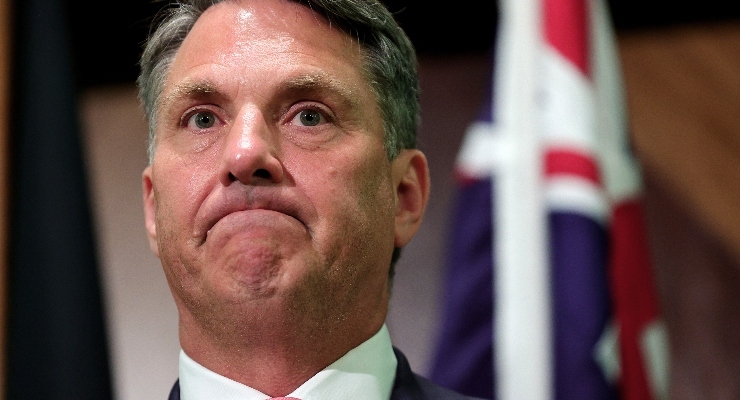
It’s tempting fate to suggest that any particular day of an election hasn’t been particularly eventful, and no doubt as soon the subeditors hit publish, news will drop that Scott Morrison is, in fact, a dual citizen on account of his hitherto unnoticed Chinese heritage. But ultimately the most interesting thing to happen in politics today actually happened last night.
Opposition Leader Anthony Albanese chose an inopportune time to finally contract COVID-19, dragging him off the campaign trail for a week and making the day of whoever at The Herald Sun had been sitting on “Albo queasy” for a headline (guys, “Albo sneezy” and “Albo wheezy” are right there).
The impact this will have on Labor’s campaign remains to be seen — Albanese obviously can’t travel for seven days but, symptoms allowing, there’s nothing stopping him from going on talkback or holding virtual press conferences as Prime Minister Scott Morrison did when he contracted COVID. And while Albanese’s fortune had improved this week with a solid showing at the first leaders’ debate on Wednesday, there’s also a sense that a chance to reset while the Labor leadership team take the spotlight off him might not be the worst thing. And as unnamed Labor sources told the Nine papers, better he has to isolate for a week now than on May 14.
Elsewhere, the business of politics continued, with Labor hammering Morrison on the intelligence failures that saw Australia blindsided by a pact, revealed back in March, between China and the Solomon Islands: “This has happened on Scott Morrison’s watch. This is an epic fail when it comes to foreign policy. Scott Morrison will do everything he can today, and I expect for the next few weeks, to try to blame someone else for this,” campaign spokesman Jason Clare told reporters in Sydney.
Leader in the Senate Penny Wong, in Western Australia campaigning with Swan candidate Zaneta Mascarenhas, hit a similar note, accusing Morrison of using tough rhetoric on China to distract from his domestic failures.
And certainly Morrison’s response to the saga has been to attack Labor’s supposed softness on China. Today he leapt on reports in The Australian (which whirred reliably to life as soon as it became apparent that the issue, on the record since March, was going to start causing Morrison some headaches) on a speech that Deputy Labor Leader Richard Marles had made in Beijing in 2019. Crikey noted earlier today that Marles is relatively low profile for a deputy party leader. In Albanese’s absence, he might want to brace himself for a lot more of this kind of attention.








I think Albo has a very competent “team” of Shadow Minsters and back benchers to call on. Coalition ministers are largely ineffective, and this will give the voters a different group to see instead of the sole focus on the 2 leaders.
I hope so anyway.
Imagine a ‘debate between teams’?
Anyone facing Morrison’s mob would have to “BYO raincoats, gum-boots and sanitiser” .
Possibly not a bad idea to pause; it’s the media supporting the LNP which demands that the public has the election pushed in our faces on an hourly basis?
Further, from the US Harvard Kennedy School whose ‘Journalist Resource’ (20 April ’22) had article from Denise-Marie Ordway:
‘‘Horse race’ coverage of elections: What to avoid and how to get it right. It’s unlikely journalists will stop covering elections as a competitive game, despite researchers’ warnings that it can harm voters and others.
What to Avoid:
Reporting on any opinion poll you come across.
Focusing on a single opinion poll — especially outliers — without providing context.
Covering poll results without taking into account the poll’s margin of error.
Solutions:
Scrutinize and compare opinion polls to gauge their quality. Rely most often on those conducted by reputable pollsters.
When covering individual polls, put its findings into perspective by noting historic trends and what other recent polls show. Consider combining poll results and reporting averages to give audiences the most accurate picture of public sentiment.
Learn what a margin of error is and how it relates to polling and poll results. Make sure news stories featuring poll results reflect their margins of error.’